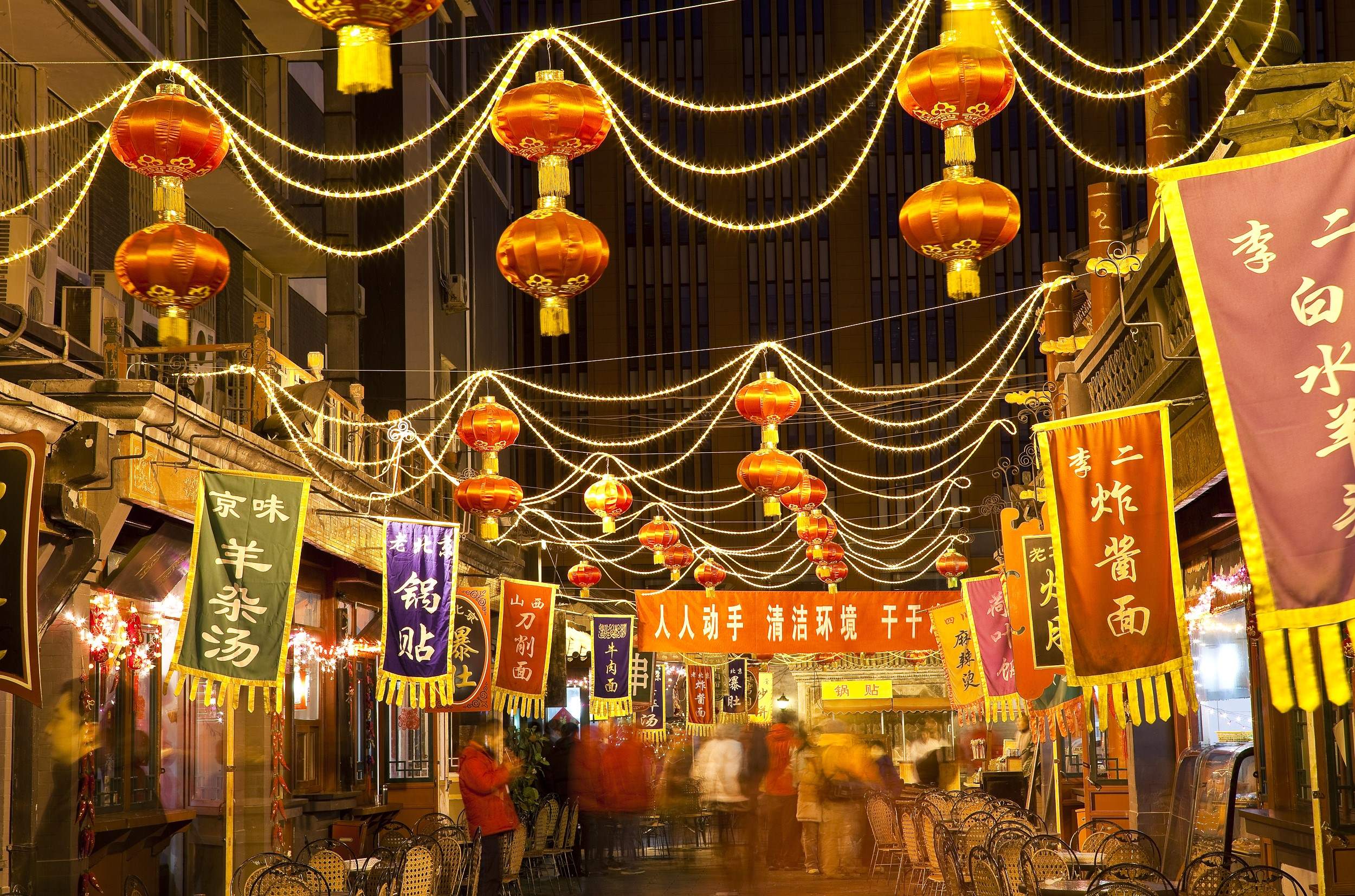
Is it safe to travel to China? Travelling to China is generally safe for most travellers. Even late at night, you’ll find the streets bustling with locals enjoying night markets and late-night snacks, as Chinese cities maintain good security around the clock.
That said, like when visiting any foreign country, there are certain precautions worth taking. Being aware of your surroundings in crowded places, choosing reputable transportation options, and understanding regional differences can make your trip even smoother. In the following sections, we'll explore practical safety tips covering urban travel, transportation choices, food safety considerations, and advice for different types of travellers. These insights will help you navigate China with confidence while focusing on the amazing experiences this country has to offer.
Safety in Public Places
China is generally a very safe country to visit, and crowded public areas should not be a major concern. However, as with any popular travel destination, petty crimes like pickpocketing can happen—especially in busy tourist spots, train stations, and on overnight buses or trains.
When shopping at markets, be mindful of scams. Some sellers might try to overcharge tourists, so it helps to know basic numbers in Mandarin and have small bills ready. If something isn’t clearly priced, double-check before paying to avoid surprises.
Overall, just use common sense—keep an eye on your belongings, avoid flashing valuables, and stay aware of your surroundings. With these simple precautions, you can enjoy China’s bustling streets and markets without worry.
Common Risks:
✔ Pickpocketing – Common in crowded places (metro, markets).
✔ Scams – Fake taxis, overcharging.
Is China Safe at Night?
China remains relatively safe at night, especially in big cities, where streets stay lively until late at night. Solo travellers and women should stick to well-lit main roads and avoid quiet side streets when walking alone. Night markets and late-night restaurants are generally safer, but it is wise to keep valuables safe in crowded areas.
| Area | Safety Level | Tips |
Big cities (Beijing, Shanghai) | Very safe | Well-lit, police presence |
Nightlife districts | Moderate | Watch for drink spiking, scams |
Rural areas | Lower safety | Avoid walking alone at night |
Road and Transport Safety
Travelling in some Asian countries requires extra attention to road and transport safety. Public transport like metros and high-speed trains is efficient and secure, though busy areas may attract pickpockets. Buses are generally safe, but unfamiliar routes can be tricky for visitors—check maps or ask for help if unsure.
When crossing roads, stay cautious, as drivers may not always follow traffic rules, even at pedestrian crossings. Always look both ways before stepping onto the road. Taxis can be unreliable, with some drivers speeding or overcharging. For a safer ride, use ride-hailing apps or official taxi stands, and always check if seatbelts are available. A little vigilance goes a long way in staying safe.
China Food and Water Safety
Street Food: Choose busy stalls with fresh, fully cooked food to avoid contamination.
Spicy Food: Start with milder dishes and gradually increase spice levels to test your tolerance; keep dairy products handy to soothe burning sensations.
Restaurants: Pick busy, clean establishments and avoid raw/undercooked dishes if hygiene is uncertain.
Tap Water: Always drink bottled, boiled or filtered water.
Markets: Wash fruits thoroughly and avoid pre-cut items exposed to air.
Bars/Nightlife: Order drinks from reputable places to avoid fake alcohol.
Rural Areas: Stick to piping hot meals and avoid unpasteurised dairy products.
Environmental and Weather Safety
When travelling to different regions in China, you need to know the local environment and weather before travelling. From northern cities' seasonal smog to southern coastal typhoons and high-altitude challenges in Tibet, each area requires specific precautions.
| Region | Main Risks | Precautions |
Northern China | Air pollution, cold winters | Wear masks in smog, dress warmly |
Southern China | Typhoons, high humidity | Check weather alerts |
High-Altitude (Tibet) | Altitude sickness | Acclimatise slowly, drink water |
Safety for Different Travellers
Solo Travellers
China is generally safe for solo travellers, but it's wise to avoid quiet areas at night. Staying in hostels can provide both security and opportunities to meet other travellers. Always let someone know your plans when exploring less touristy spots.
Female Travellers
Women travelling alone will find China relatively safe, though it's best to avoid walking alone late at night in unfamiliar areas. Dressing modestly can help avoid unnecessary attention. Public transportation and busy streets are usually fine, but trust your instincts if a situation feels uncomfortable.
Families with Children
China is quite family-friendly, with many attractions suitable for kids. However, be extra careful with road crossings and food choices to avoid stomach upsets. Keep a copy of your child’s ID handy, as some hotels may require it for check-in. Pack snacks and familiar foods for picky eaters.
Elderly Travellers
Take care on uneven pavements and crowded streets. Opt for direct transport options where possible to avoid long walks with luggage. Carry any necessary medication and check if hotels have lifts, as some older buildings may not.
Adventure Travellers
If hiking or exploring rural areas, inform others of your route and expected return time. Mobile signals can be weak in remote regions, so carry offline maps and emergency supplies.
Tips for Staying Safe in China
Learn Basic Mandarin Phrases
While major cities have English speakers, knowing key phrases can be invaluable in emergencies. Start with simple words like "help" (救命, jiùmìng) and "I need a doctor" (我需要医生, wǒ xūyào yīshēng). Even basic numbers and directions will make navigating easier. Locals appreciate the effort, and it helps avoid misunderstandings in less touristy areas.
Use a Reliable VPN Service & eSIM
Many Western websites and apps (Google, WhatsApp, Instagram) are blocked in China. To stay connected in China, install a reliable VPN before arrival to access blocked websites, and consider getting a local eSIM from providers like Airalo for instant mobile data, ensuring you can use maps and messaging apps throughout your trip.
Carry Your Hotel's Address in Chinese Characters
Most taxi drivers don't speak English, so keep your accommodation's address written in Chinese (ask the hotel for a business card). This is also useful if you get lost - locals can point you in the right direction or help flag a taxi. For extra safety, save the address in your phone's notes with the hotel's contact number.
Register with Your Embassy
For longer stays, consider registering with your country's embassy or consulate. They can provide critical updates during emergencies like natural disasters or civil unrest. Many offer online registration systems for convenience.
Keep Emergency Numbers Handy
Save these in your phone: Police (110), Fire (119), and Ambulance (120). Also note your embassy's contact details. While major cities have English-speaking operators, in smaller towns you may need a Mandarin speaker to assist with the call.
Be Aware of Common Scams
Research current tourist scams in your destination. These might include tea house overcharging, fake taxis, or "art student" schemes. A good rule is to be wary of overly friendly strangers inviting you to specific shops or locations.
Understand Local Laws and Customs
Some actions that might be minor offences at home could have serious consequences in China. For example, certain discussions about politics or sharing some social media content could cause issues. When in doubt, err on the side of caution.
FAQs on Safety in China
Is China safe for Western tourists?
Yes, but be aware of scams & cultural differences.
Are taxis safe in China?
Most are safe, but use Didi (ride-hailing app) for reliability.
Is it safe to travel to China alone?
Yes, but take standard solo travel precautions.
Final Conclusion: Is China Safe?
Yes, China is safe for tourists—but like any country, you should stay alert to scams, transport risks, and regional hazards. Follow this guide, and you’ll have a smooth, safe trip!


 435580 booked
435580 booked






